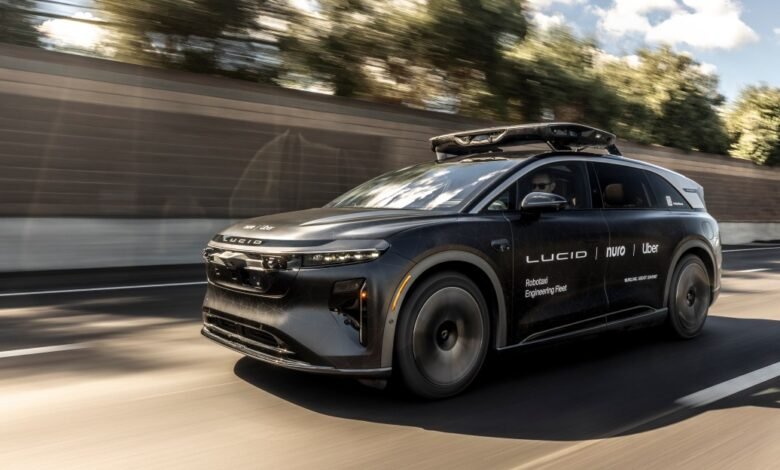Uber Challenges Waymo’s Robotaxi Reign in San Francisco

▼ Summary
– Uber has selected San Francisco as the first city to launch its new robotaxi service in partnership with Lucid and Nuro.
– The companies have started on-road testing with a Lucid Gravity SUV modified with Nuro’s self-driving software but require permits before accepting paying passengers.
– A major robotaxi deal aims to deploy 20,000 autonomous vehicles in the US over the next six years, with the fleet owned by Uber or a partner.
– This initiative is partly a response to regain market share lost to Waymo, which achieved significant ridership in San Francisco after opening to the public in 2024.
– Uber and Waymo also collaborate in other cities, creating a complex relationship as they compete directly in the robotaxi market.
Uber has officially selected San Francisco as the inaugural city for its new robotaxi service, developed in partnership with Lucid and Nuro. This move signals a direct challenge to Waymo’s established autonomous ride-hailing operations in the region. The companies have already initiated on-road testing using a Lucid Gravity SUV equipped with Nuro’s autonomous driving technology. Before launching commercially, however, they must secure driverless operational permits from the California DMV and ride-hailing authorization from the California Public Utilities Commission. Uber states it has kept regulators informed at every stage of development.
Earlier this year, the three companies announced a major agreement to deploy up to 20,000 autonomous vehicles across the United States within the next six years. The fleet will be owned either by Uber or by a third-party fleet management partner. Sachin Kansal, Uber’s chief product officer, emphasized the significance of the Bay Area as a technology hub, noting that the public launch of the next-generation robotaxi program is scheduled for next year.
Lucid has delivered the first engineering prototypes to Nuro, with several vehicles already retrofitted with the full suite of hardware and software required for driverless operation. The partnership aims to build an engineering fleet of more than 100 robotaxis in the coming months. Nuro will oversee testing and validation, which includes simulation, closed-course evaluations, and public road tests conducted with human safety drivers present.
This initiative represents Uber’s effort to reclaim market share lost to Waymo, which removed its waitlist and expanded public access to its robotaxi service in San Francisco in 2024. An analysis of credit card transactions from December 2024 indicated that Waymo’s market share in the city was nearly on par with Lyft’s, though only for trips that both started and ended within Waymo’s approved service zone.
Despite their rivalry in San Francisco, Uber and Waymo continue to collaborate in other markets. In Austin and Atlanta, Waymo’s autonomous vehicles are available exclusively through the Uber app. Observers will be watching closely to see how this cooperative relationship evolves, or possibly erodes, as the two companies increasingly compete head-to-head in the robotaxi space.
(Source: The Verge)


